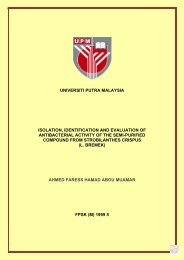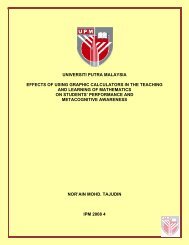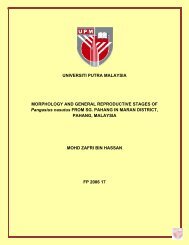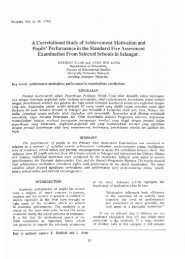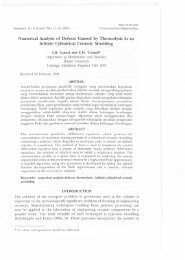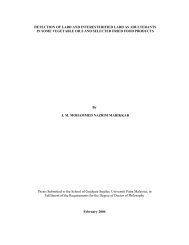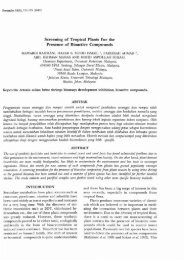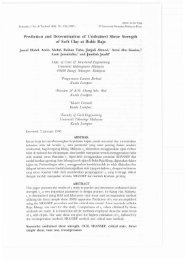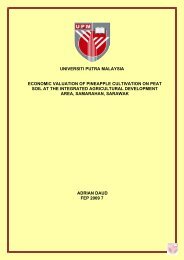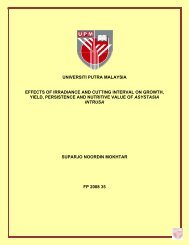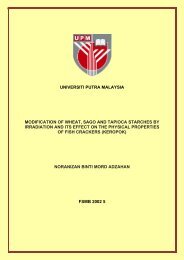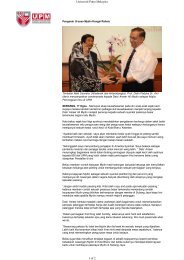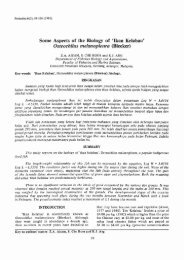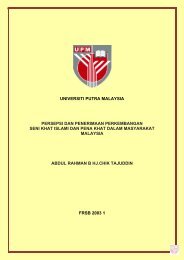universiti putra malaysia protective effect of phenobarbitone and ...
universiti putra malaysia protective effect of phenobarbitone and ...
universiti putra malaysia protective effect of phenobarbitone and ...
You also want an ePaper? Increase the reach of your titles
YUMPU automatically turns print PDFs into web optimized ePapers that Google loves.
CHAPTERl<br />
INTRODUCTION<br />
The rearing <strong>of</strong> sheep especially on small farm holdings in tropical <strong>and</strong><br />
subtropical countries play an important role in the production <strong>of</strong> meat (Abas<br />
Mazni <strong>and</strong> Sharif, 1987). There is a considerable increase in the production <strong>of</strong><br />
this animal in Malaysia. Availability <strong>of</strong> suitable pasture is a prerequisite<br />
towards achieving this goal. Signal grass (B. decumbens) is an important source<br />
<strong>of</strong> fodder for livestock in Malaysia, because <strong>of</strong> its high nutritive value <strong>and</strong> high<br />
resistance towards pest <strong>and</strong> drought (Loch, 1977). Unfortunately, this grass is<br />
highly toxic to sheep as it causes liver <strong>and</strong> kidney damage (Salam Abdullah et<br />
al., 1988; Salam Abdullah <strong>and</strong> Rajion, 1990). At terminal stages sheep develop<br />
anorexia <strong>and</strong> they die a few weeks after continuous grazing on this grass. The<br />
grass is not toxic per se but certain compounds, which as a result <strong>of</strong> ruminal<br />
activities <strong>of</strong> the sheep were converted to their derivatives (episarsasapogenin<br />
<strong>and</strong> epismilagenin) responsible for causing toxicity.<br />
Attempts to prevent the toxicity to this grass by adding zinc sulphate to<br />
the drinking water were not very successful (Salam Abdullah et a!., 1994). The<br />
mechanism <strong>of</strong> protection by zinc from the toxic <strong>effect</strong> <strong>of</strong> B. decumbens may be<br />
due to the binding <strong>of</strong> toxic compounds, episarsasapogenin <strong>and</strong> epismilagenin,




